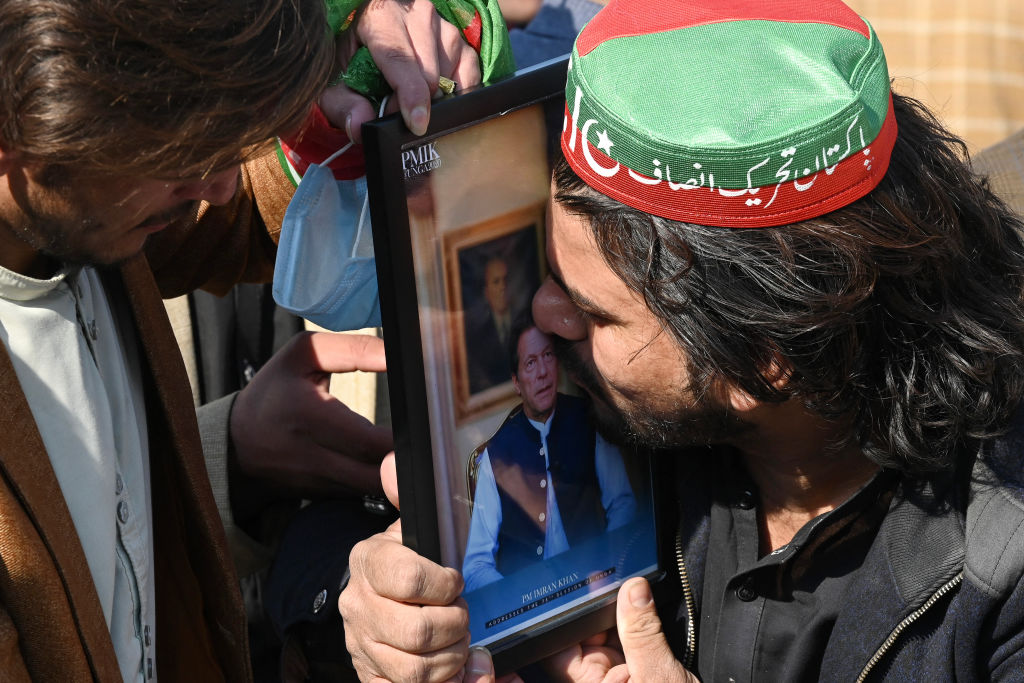- Wednesday, July 02, 2025
All major leaders, including former prime ministers Nawaz Sharif and Imran Khan and PPP’s Bilawal Bhutto Zardari have spoken in favour of normalisation of relations with India at different points of time.

By: Shubham Ghosh
FINAL results of the general elections held in Pakistan on February 8 were yet to be confirmed and going by the trend, the country could see a coalition of forces to form its next government. Political horse-trading over a considerable period post the results is a certainty as independent candidates backed by former prime minister Imran Khan’s Pakistan Tehreek-e-Insaf (PTI) ruined the dream of Pakistan Muslim League -Nawaz’s (PML-N) to form the government with a thumping majority.
The results would also leave the army, the country’s most powerful institution, worried as political parties carrying its blessings have traditionally risen and fallen in Pakistan. This time, it was widely believed that the PML-N led by former prime minister Nawaz Sharif had its support this time. On Friday (9), Sharif even went on to declare that his party has won this election and invited rival parties to form a unity government even as several media reports indicated that Khan’s outfit was doing well.
Read: Three-time PM Nawaz Sharif claims win in controversial Pakistan election
It is still not clear who would become the next premier of Pakistan which is battling scores of challenges at the moment — including economic problems, border troubles and terror threats, among others. But whoever it is, India will still have to deal with a problematic Islamabad even though all the major leaders have called for normal ties with New Delhi at various points of time.
Sharif, who is eyeing his fourth term as the prime minister, has been a leader who sought normal relations with India time and again. In the past, he had lost the prime minister’s chair for trying to promote peace with the eastern neighbour as he was ousted by military leader Pervez Musharraf in a coup. He had also attended the swearing-in ceremony of prime minister Narendra Modi in New Delhi in 2014 and had welcomed the Indian PM during a sudden trip to Lahore in 2015 before the terror attacks in Pathankot and Uri happened, completely derailing the bilateral ties.
Read: Grappling with domestic challenges, Pakistan leaders avoid anti-India rhetoric in poll 2024
The 74-year-old has still not lost hope and this time, his party manifesto promises a message of peace to India on the condition that New Delhi reverses its move of scrapping Article 370 that gave Kashmir a special constitutional status.
Sharif, who returned from a self-exile in the UK last year, has also acknowledged India’s progress and global achievements and rued Pakistan’s missed chances, as he tried to project a positive leadership.
The PTI during its stay in power had also asked India to “give peace a chance” and expressed Pakistan’s readiness to act on intelligence over the ghastly terror attack on a convoy of Indian paramilitary troops in Kashmir in 2019 that resulted in 40 deaths. In 2021, Khan welcomed a ceasefire agreement with India, saying Islamabad was ready to address issues through dialogue. The cricketer-turned-politician was also seen time and again praising the Indian leadership saying it showed the spine to pursue an independent foreign policy despite the West creating pressure to alienate Russia over the Ukraine war.
He said his government had also tried to adopt an independent foreign policy like India.
Pakistan People’s Party (PPP) leader Bilawal Bhutto Zardari, the third major player in the fray, has followed a more multifaceted stance on India. While advocating normalisation of ties with India, he also made strong criticism of PM Modi time and again, even calling him ‘Butcher of Gujarat’ in the US.
He had accused India of hosting a G20 tourism meeting in Kashmir last year saying the country was exploiting its G20 presidency, just weeks after visiting India’s Goa for a Shanghai Cooperation Organisation meeting and called the trip successful.
The PPP’s mixed stance vis-a-vis India has been witnessed in the past as well. During his tenure as the president, Bilawal’s father Asif Ali Zardari had sought deeper ties with India. That was in contrast with the early years of Bilawal’s mother Benazir Bhutto’s prime ministership in the 1990s when ties between the two South Asian neighbours were far from smooth.
However, when any of these leaders take control of the country, the backing of the army would be a major factor and how they deal with the domestic pressure to determine their India policies will eventually shape Pakistan’s relations with its neighbour in the days ahead.